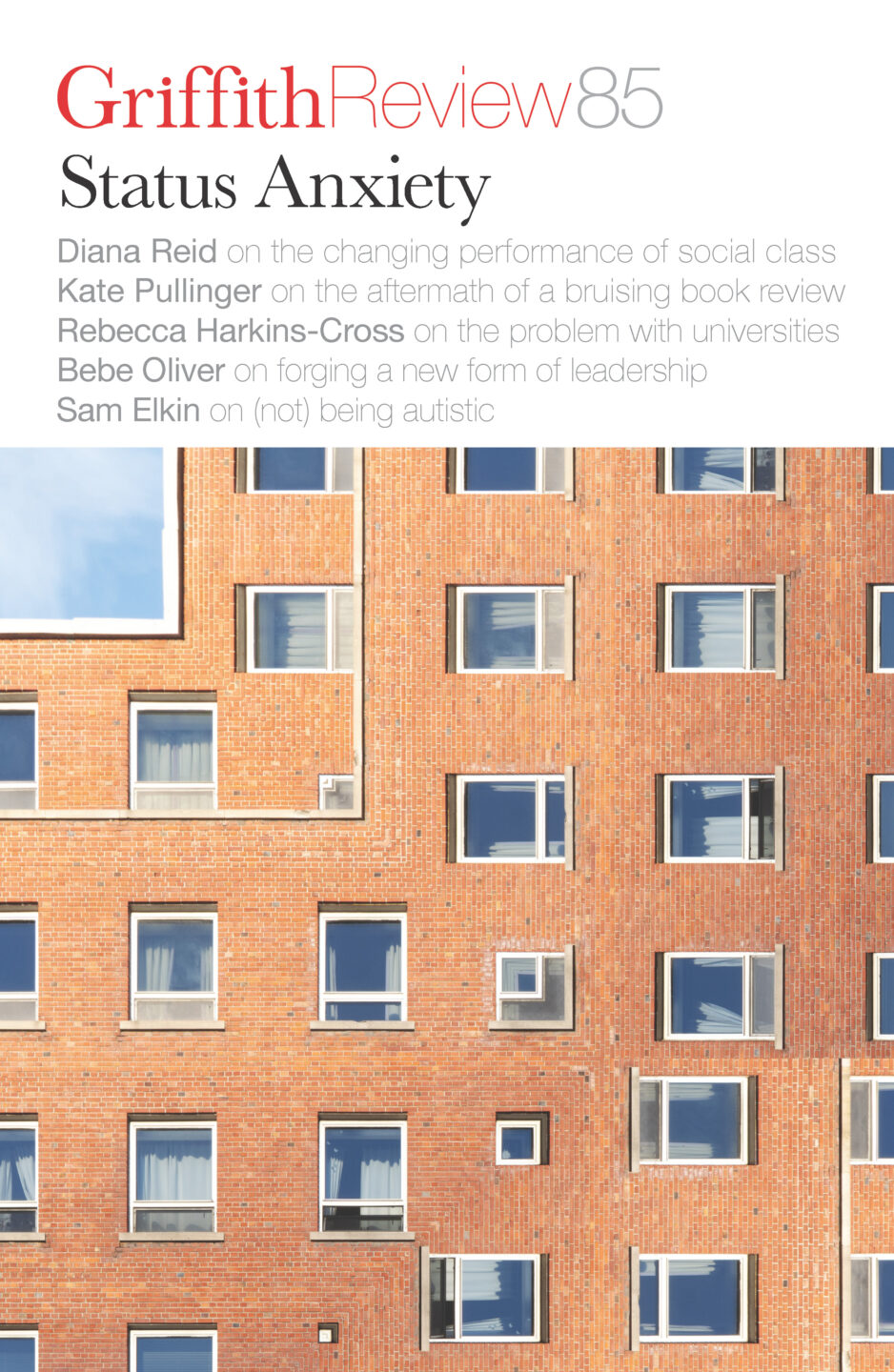Featured in

- Published 20240806
- ISBN: 978-1-922212-98-6
- Extent: 216pp
- Paperback, ePUB, PDF


Already a subscriber? Sign in here
If you are an educator or student wishing to access content for study purposes please contact us at griffithreview@griffith.edu.au
Share article
More from author

Working body
We are taught to fear visible improvement. We are taught, passively and explicitly, to be ashamed. It is bad to look strong and muscular: our figures should not have a noticeable presence; they should not occupy too much space.
More from this edition

Dying of exposure
Non-fictionPublishing is a weird industry, a retail supply service where every day hundreds – thousands – of brand-new, untested products are launched, each one a little bit different to the last. The long-haul career trajectory of most writers is increasingly difficult to maintain with incomes nosediving, as evidenced by multiple surveys. The road is cluttered with novelists brought down by ‘bad track’, their new books rejected because of the poor sales of previous titles. But as readers we still need help to discover good books, to figure out what to read next. As book pages, magazines and newspapers shrink or disappear altogether, it’s no longer clear what impact book reviewers can have on a career. The endorsement of someone whose work – critical or otherwise – you admire remains important to many writers.

Conferral
Non-fictionBeneath my fantasy of a regular wage is the puerile hunch that if I stay in academia, I can regain some of the nervy possibility I held as an undergraduate student. It was at university that I first met people whose days were preoccupied with thinking, reading and writing, revelatory mostly because they were compensated for these activities with bourgeois trappings and validation. With hindsight, I can recognise that my straining so doggedly to become the kind of person who succeeded according to the university’s metrics mainly taught me what bell hooks says is the primary lesson of college – namely, ‘obedience to authority’.

Radioactive fallout
Non-fictionThe quake lasted six minutes – the office floor jolted convulsively; metal shelves rattled, files fell with a cacophony of thuds, and the structure of the building seemed to be squeaking. And then it stopped. My office building hadn’t collapsed. Neither had our apartment; my husband and son weren’t hurt. But it wasn’t the end. The Fukushima Daiichi Nuclear Power Plant had lost power, which was required to cool both the reactors and spent fuel rods. The government was braced for the worst: massive explosions or core meltdowns. A nuclear emergency was declared at 7.03 pm.